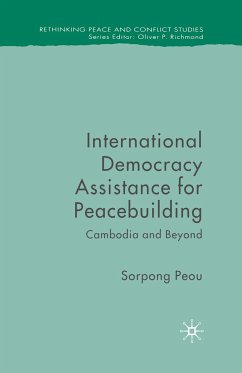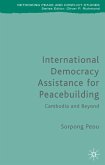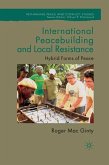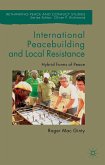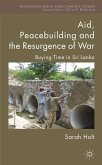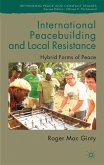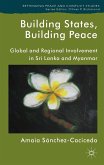This book explains why international donors may succeed in putting war-torn countries on the path of democratic transition and negative peace, but fail to consolidate the gains they make. Critical of neo-institutionalism, but sympathetic to historical and normative institutionalism, this book advances 'complex realist institutionalism' theory.
'I found the book very well structured and argued. The book's cautionary conclusions about the effects of democracy assistance seem justified. This seems to be a fine piece of work.' - Dr. Thomas Carothers, The Carnegie Endowment for International Peace, USA
'[...] I found it extremely helpful in trying to come to get some understanding of the Cambodian case. Sorpong Peou has produced a really solid manuscript on a country that deserves much more attention.' - Professor William Case, City University of Hong Kong
'Sorpong Peou has written a first-rate book that will make an important contribution to the field.' - Professor William B. Frolic of York University, Canada
'I find this work extremely interesting.' - Professor Peter Leuprecht, Director of the Montreal Institute of International Studies, Canada
'...Peou provides rich description of the recent developments in Cambodian politics beautifully...' - Sophal Ear - Contemporary Southeast Asia
'[...] I found it extremely helpful in trying to come to get some understanding of the Cambodian case. Sorpong Peou has produced a really solid manuscript on a country that deserves much more attention.' - Professor William Case, City University of Hong Kong
'Sorpong Peou has written a first-rate book that will make an important contribution to the field.' - Professor William B. Frolic of York University, Canada
'I find this work extremely interesting.' - Professor Peter Leuprecht, Director of the Montreal Institute of International Studies, Canada
'...Peou provides rich description of the recent developments in Cambodian politics beautifully...' - Sophal Ear - Contemporary Southeast Asia

